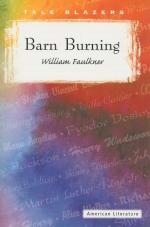|
This section contains 907 words (approx. 3 pages at 400 words per page) |

|
Any discussion of William Faulkner in a historical context necessarily involves a discussion of modernism, the philosophical and artistic movement to which Faulkner, perhaps reluctantly, belonged. Modernism is generally considered the peculiarly twentieth-century school of artistic expression, and it is associated in literature with, for example, the poetry of T. S. Eliot and Ezra Pound, the painting of Georges Braque and Pablo Picasso, the music of Igor Stravinsky and Arnold Schoenberg, and the prose fiction of James Joyce, Marcel Proust, John Dos Passos, and Faulkner. In each of these cases, one observes a conscious breaking with traditional ideas about style, content, and purpose. In the poetry of Pound, as for example in his Cantos, experience is broken in pieces, and the reader is faced with a collage of fragments, allusions, declarations, and epiphanies; so, too, in the poems of Eliot, who also typifies the moral atmosphere...
|
This section contains 907 words (approx. 3 pages at 400 words per page) |

|




